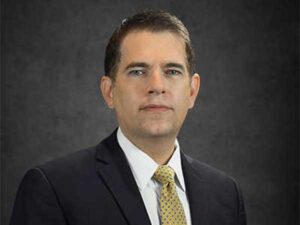Rebecca Siegel doesn't usually pay attention to one-year drops in data trends, but the 2.2% decline in overall cancer mortality from 2016 to 2017—driven primarily by lung cancer—seemed too big to ignore.
On Jan. 8, the American Cancer Society published its annual estimates of new cancer cases and deaths, declaring that the latest data—from 2016 to 2017—show the “largest ever single-year drop in overall cancer mortality of 2.2%.”
A report by the Office of the Surgeon General finds that more than two-thirds of United States adult cigarette smokers report interest in quitting cigarette smoking; and the majority of adult cigarette smokers in the U.S. have tried to quit during the past year.
Stand Up To Cancer has launched two initiatives to increase minority representation in cancer clinical trials by amending its grant application requirements and funding a new research team focused on diversity and inclusion.
On Feb. 1, Thomas J. Lynch will report to work as president and director of Fred Hutchinson Cancer Research Center.
A study evaluating the real cost of smoking by state over a lifetime ranked each of the states, finding that over an average lifetime smokers spend about $1 million to $2 million on tobacco-related costs, depending on the state they live in.
Contrary to declarations by Moffitt Cancer Center, Thomas Sellers, the institution's ousted director, was not involved in the Thousand Talents program sponsored by the People's Republic of China, said a Florida attorney who represents Sellers in preparing a lawsuit against the cancer center.
On Jan. 17, Moffitt Cancer Center officials delivered the final report of the institution's internal investigation to the Florida legislature, alleging that top leaders and researchers at the cancer center had opened personal bank accounts in China and received unreported personal payments and other research support.
What's happening at H. Lee Moffitt Cancer Center?
Richard Turman was named president on ACT for NIH, a Washington group that has played a key role in increasing federal appropriations for biomedical research over the past six years.















